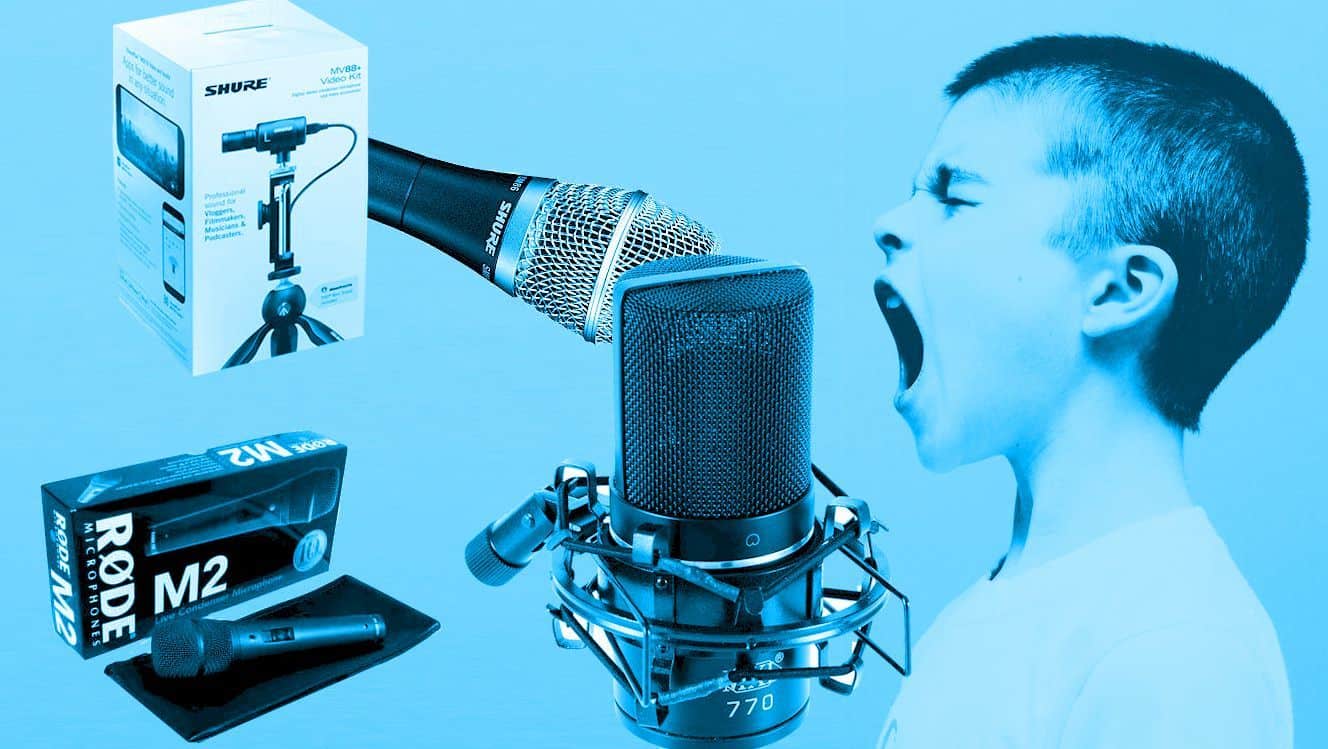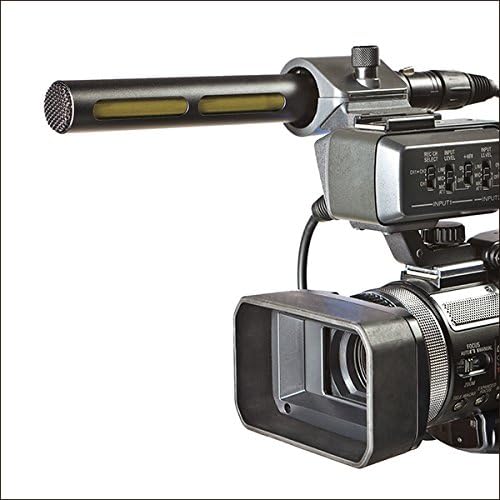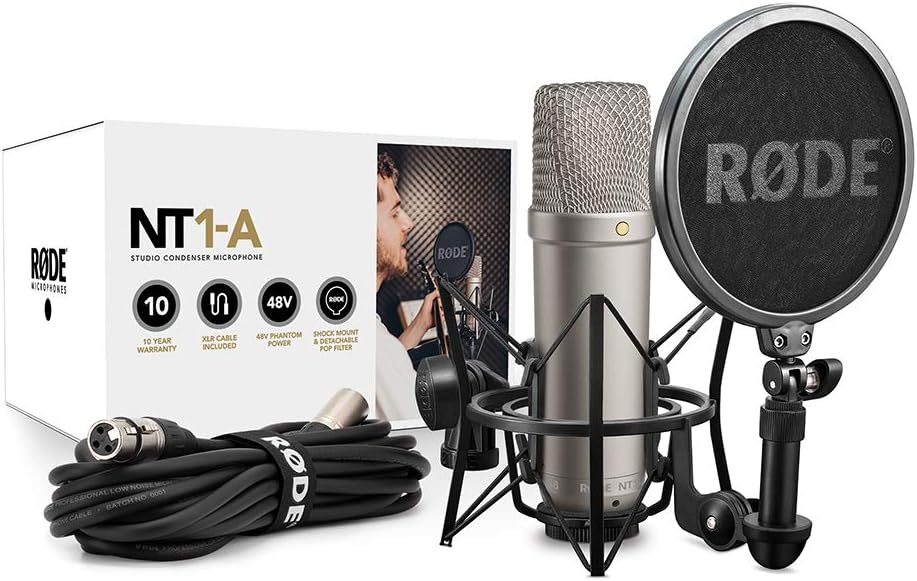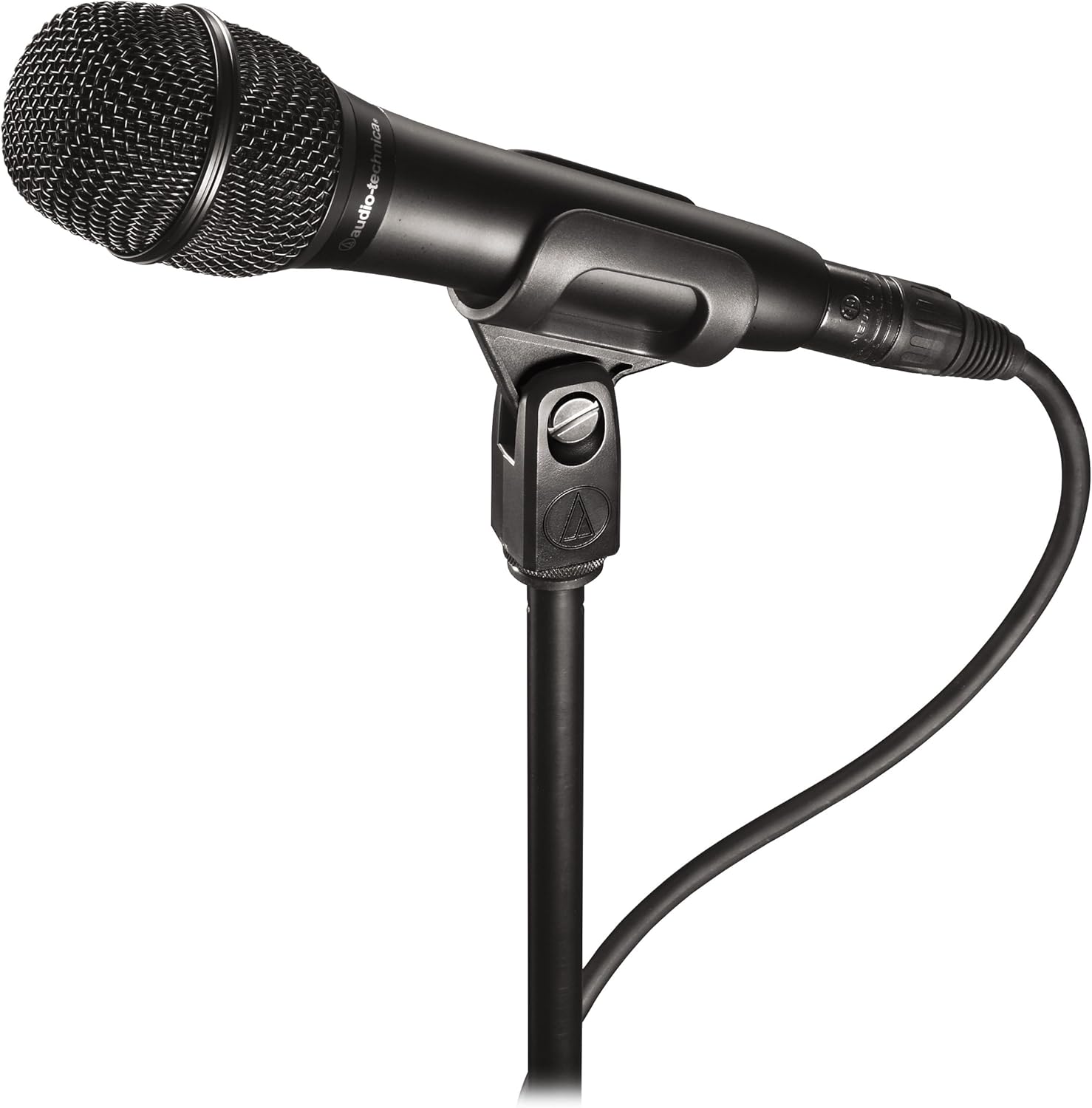Belt out your favorite song, or make professional podcasts, with the best live condenser vocal mic. This special condenser microphone makes your voice sound clearer and louder, without any background noise. Regardless of whether you’re an aspiring singer or looking to produce a quality recording studio, you must check out our list of the excellent live condenser vocal microphones this year.
Contents
Comparison Table of the Top Quality, Highly-Rated Live Condenser Vocal Microphones 2022
Live Condenser Vocal Microphones | Style / Design | Sample / Word Rate | Polar Pattern | Cable Length | Special Features | |
|---|---|---|---|---|---|---|
Adjustable desktop microphone | 44.1 kHz / 16 bit | Cardioid | USB 3.0, 2.0, 72 inches long | No drivers, compatible with PC and MAC | ||
Boom arm with desk clamp, anti-vibration spider shock mount | 192 kHz / 24 bit | Cardioid | 2 meters | Double-layer pop filter, cable ties, noise reduction, high-quality audio reproduction | ||
Custom shock mount | 44.1/48 kHz / 16 bit | Cardioid | 10 feet | Large diaphragm, wide dynamic range, switchable high-pass filter | ||
With MXL 70 shock mount | 44.1 to 48 kHz | Cardioid | 20 feet Mogami cable | Balanced bass response, low noise preamp, with rugged storage case | ||
Attached to a compact digital camera | 90 Hz to 20 kHz | Super cardioid | Cell | For video production, narrow acceptance angle, smooth, natural sound | ||
Microphone mount | 48 kHz/ 24 bit | Digital stereo condenser | 1 meter | Earphones & fur windshield included, Livestream ready, headphone monitoring, with free apps | ||
Stand clip stabilization arm and swivel mount | 32, 44.1 and 48 kHz | Cardioid | 10 feet XLR Cable | Distortion-free bass-cut filter, pre-attenuation pad switches, high SPL applications, complete set | ||
Handheld or a mic stand | 75 Hz to 18 kHz | Cardioid | 6 feet | Neodymium capsule, almost zero handling noise, ergonomically designed | ||
Shock mount | 44.1/48 kHz / 16 bit | Cardioid | 20 inches XLR cable | Large capsule, low noise, wide dynamic range, true condenser | ||
Handheld | 35 Hz to 20kHz | Super-cardioid | 20 feet | Feedback rejecting, on/off switch, ergonomic design, low handling noise | ||
Handheld | 50 Hz to 18 kHz | Cardioid condenser | 6 feet XLR Cable | Tailored frequency response, rugged construction, internal windscreen | ||
Gooseneck microphone | 50 Hz to 17 kHz | Cardioid | 10 feet | XLR Preamp, foam windscreen, Shock & Flange mount, mute switch, LED indicator | ||
Handheld, stand mount | 20 Hz to 20 kHz | Super cardioid | 300 meters | Metal housing, padded nylon bag | ||
Handheld | 40 to 16000 Hz | Super cardioid | 6 feet | Steel inlet mic basket, distortion-free, ergonomic design | ||
Handheld, mic stand | 40 to 20,000 Hz | Cardioid | 10 feet | High SPL-handling rate, wide dynamic range, multi grille, corrosion-resistant contacts, gold-plated XLRM connector |
Detailed Reviews of the Live Condenser Vocal Microphones
1. Blue Snowball Black iCE
The Snowball Black iCE by Blue is a live condenser vocal microphone with a condenser capsule, customized to provide crystal-clear audio. This microphone comes with a tripod stand, and it is best placed in the middle of your desk or table where it can work in the most efficient way.
This vocal microphone is best for streaming audio content like podcasts and for recording all kinds of audio. Snowball iCE needs no drivers to install; all you need to do is to plug it in your PC or laptop's USB port, and you're good to go. You can also use this for podcasts, making voiceovers, music recording/producing, making VoIP calls, gaming, and for interviews.
The Pros
- Plug and play microphone
- Ideal for all audio applications
- With an adjustable microphone stand
- Easy to set up and take anywhere
- Compatible with PC, MAC devices
The Cons
- The stand takes up a lot of space
- The stand needs to be fully extended to hold the mic
2. Tonor Condenser Microphone
Great TONOR Cardioid Condenser Microphone With Boom Arm for Podcasting and Music Recording
The TONOR vocal microphone has an extra-large diaphragm that's gold-plated to improve sound ranges from very low to high. It's a low-distortion microphone with a smoother frequency response that provides improved sound quality. This is why users prefer this microphone for podcasting, music recording, and doing voice-overs.
Under the hood is a pro-sound chipset that can pick up nuances in a much wider range, which means your voice will be loud and clear. This is also a plug and play device as you don’t need a driver or software to install this on your PC or laptop. It is even compatible with a PS4 gaming console. (how to connect speakers to ps4 slim)
The stand and boom arm are made from extra-durable steel, and thus, you'll get years of use with this stand. This boom arm also has a desk clamp that offers a larger contact area and is very easy to use. This boom arm may be operated without any kind of noise, which can affect y our live audio, gaming, or recordings.
This live condenser vocal microphone comes in a set. It includes a pop filter, a spider shock mount, a mic cover, cable ties, USB cable, and a warranty card. It comes with a 2-year manufacturer's warranty, and this adds more value for your money.
The Pros
- Plug and play device
- Comes in a set
- With an advanced pro chipset
- With an upgraded, quiet and adjustable stand
- Improved diaphragm
The Cons
- This is not compatible with an Xbox
3. Audio-Technica AT2035 Cardioid Condenser Microphone
Top-rated Live Condenser Vocal Microphone for Studio, Podcasts, and Live Streaming
The Audio-Technica AT2035 is a cardioid condenser mic that's made for podcasting, live streaming, and also as a studio microphone. First-time cardioid condenser mic users will find this easy to set up and use. Meanwhile, professionals will find this a convenient, easy to use microphone ideal for voice-overs, music recording, and many more.
This Audio-Technica vocal mic is has a cardioid polar pattern that concentrates sound pickup from the center and less from the sides and rear of the mic. It also has a large diaphragm to provide a natural sound, low noise, and smooth audio ideal for many applications.
The AT2035 has a custom shock mounting accessory that enhances sound isolation. It also comes with an 80 Hertz high-pass filter plus a 10-decibel pad for improved noise cancellation and better sound reproduction. The Audio-Technica AT2010 is also easy to install and easy to use.
The Pros
- With custom shock mount
- Easily picks up sounds from the source and less from the sides and rear
- With large diaphragm for natural sounds and low noise
- Versatile and flexible
- Easy to install and use
The Cons
- Mic boom is too short
- Included headphones are not good quality
4. MXL Mics 770 Cardioid Condenser Microphone
Nice Multi-Purpose Cardioid Condenser Microphone
The MXL 770 is a compact, easy to set up, multi-purpose cardioid condenser microphone. It was developed for vocals, musical instruments, and podcasting, and video streaming. It comes with a patented design with balanced bass and high-end audio clarity. It also comes with a low-frequency roll-off that reduces any unwanted noise from different directions.
The MXL Mics 770 comes with a low-noise preamp and a balanced output. This microphone comes with its storage case with an eggshell foam lining. This vocal microphone does not come with a stand, only a shock mount. It also comes with a Mogami cable making it a very efficient tool all kinds of audio or audio-video projects.
The Pros
- Versatile condenser microphone
- Transformer-less output
- Creates a warm sound with improved clarity
- Comes with a shock mount and case
- With quality Mogami cable
The Cons
- No stand or boom arm
- Some problems with installation
5. Audio-Technica AT875R Shotgun Condenser Mic
Top Shotgun Condenser Microphone for Video Production
The Audio-Technica shotgun condenser microphone was created for video production, audio acquisition, and broadcasting, as well as other vocal microphone applications. It's a small shotgun mic at less than 7 inches in length and thus will work best with compact video cameras.
This Audio-Technica condenser microphone offers a narrow acceptance angle, which is ideal for a long-distance audio pickup but not along the sides of the rear of the camera and microphone. It is light at just 80 grams or 2.8 ounces, so it can be mounted on top of your video camera without adding any weight.
The Pros
- Lightweight, easy to install on top of your video recorder
- With a narrow acceptance angle and short length
- Good sound rejection from sides and rear
- Long-distance audio pickup
- Works with almost all compact digital cameras
The Cons
- With a mic clip but does not come with a stand
- Uses phantom power
6. Shure Digital Stereo Condenser Microphone MOTIV
Great Portable Videography Set with Digital Stereo Condenser Microphone
The Shure digital condenser microphone is a videography set that's ideal for professionals and also by beginner users. This microphone and stand are compatible with all smartphones Android and iOS, and it's also great for laptops or PC. This mic comes with a headphone output to allow real-time monitoring.
This portable vocal microphone is ready for live streaming as it is recognized by many third-party apps. As long as the device you're using recognizes Lightning audio cables or USB; you can use this vocal microphone with ease.
This vocal microphone comes with two apps: the ShurePlus MOTIV Audio as well as the ShurePlus MOTIV Video. These apps will help you customize the performance of this microphone, especially for professional or novice use. And because this microphone is connected to your phone, you can enjoy longer hours of use even outdoors.
The Pros
- Comes in a complete set
- With headphone monitoring
- Easy to set up and easy to use
- With free apps
- Lets you charge your device while on the go
The Cons
- Tripod mic holder takes up too much desk space
- Requires adapters to work
7. AKG P220 Condenser Microphone
Best Large-Diaphragm Condenser Mic for Voice Recording
The AKG P220 is a condenser microphone that produces warm and clear sounds ideal for voice recording, woodwind instrument users. You will record only the sounds you need to record with no distortions thanks to its special bass-cut filter and its pre-attenuating pad for improved headroom up to 20 dB, which helps avoid overloading. It also comes with a bass-cut filter that further reduces background noise and wind noise.
This is a very durable vocal microphone because of its strong all-metal casing. This metal body also helps protect the mic from any RF interference while the front grille keeps the mic secure from rough handling.
This is a complete set. Together with the condenser microphone are a Blucoil balanced XLR cable at 10 feet, a Blucoil pop-filter, mask shield, and a swivel mount.The Pros
- This is a complete set with quality Blucoil accessories
- Reduces distortion due to background and wind noises
- Can handle tough pressures of live and studio use
- Can be used daily
The Cons
- Problems with setup
8. Rode M1 Live Performance Dynamic Microphone
Top Rode Cardioid Vocal Microphone for Live Performance and Percussion Instruments
Rode M1 is a live cardioid vocal mic that is the first of the Rode M series (M1, M2, and M3). This is a handheld mic or may be used with a mic stand equipped with a hi-power neodymium capsule. It has an ergonomic design with an all-metal body. It is robust, balanced, and solid, not heavy.
You'll get a warm, noise-free response that's expected from a well-designed dynamic microphone. Because of its controlled cardioid polar pattern, you'll get less noise, feedback, and spills. The M1 is known as one of the best microphones and is not just for vocal performances but also for percussion instruments.
The Pros
- With hi-output neodymium capsule
- Less noise, feedback, and spills thanks to its cardioid polar pattern
- Balanced output
- With an ergonomic design
- Comes with a lifetime warranty when you register your microphone
The Cons
- Hard to flip off and on the switch
- Complaints that it emphasizes the highs and leaves out the lows
9. Rode NT1-A-MP Stereo Studio Vocal Condenser Mic
Best Rode Stereo Studio Vocal Cardioid Condenser Mic For Vocals, Guitars, and Percussion
The Rode NT1 A MP is a cardioid condenser mic that's an industry standard for warmth, enhanced dynamic range, high SPL, and clarity. The performance of this Rode mic has been compared to many expensive models, and so far, it has maintained its good quality despite the reasonable price.
This Rode mic has a low self-noise level making it one of the quietest mics for studio use. This unique quality also makes it great as a vocal microphone and also for string and percussion musical instruments.
The Rode NT1 A MP comes with a 1" capsule with a gold-plated diaphragm. It comes with a cardioid polar pattern, wide dynamic range, and true condenser to ensure the excellent sound replication minus any background noise.
Related: Rode NT1-A Review
The Pros
- With a large gold-plated diaphragm
- Low noise, wide dynamic range
- Comes with a shock mount, dust cover and pop filter
- Known as one of the quietest microphones
- Easy to use, easy to set up
The Cons
- No boom arm
- Complaints that the sound is not as bold and crisp
10. Rode M2 Handheld Super-Cardioid Condenser Mic
Good Rode Handheld Super-Cardioid Condenser Mic for Vocals and Musical Instruments
The Rode M2 is a handheld condenser microphone. It has a rugged design that offers enhanced frequency response and impressive live performance. It is tailored-fit for live stage performance with an internally shock-mounted half-inch condenser capsule. It is a high-quality dynamic microphone with a convenient, lockable on-off switch for better control of your sound.
The Rode M2 has an ergonomic design with a well-constructed all-metal case. This is covered by Rode’s 10-year extended warranty as long as you register your microphone. And aside from vocal performances, this microphone is also best for string and percussion instruments; for indoor and outdoor use.
The Pros
- Rejects feedback and background noise
- With the lockable power switch
- With an ergonomic design
- Low handling noise
- With a 10-year extended warranty when you register your mic
The Cons
- Hard to flip on and off switch
- Highs are emphasized too much
11. Shure SM86-LC Cardioid Condenser Vocal Microphone
Top-rated Shure Cardioid Condenser Vocal Mic
The Shure SM86-LC is a sensitive microphone with improved output levels, dynamics, and frequency responses. It requires Phantom Power to operate properly. Because of its cardioid pattern, all off-axis signals are reduced, and the results are better performances, crispier and louder sounds. You can use the Shure SM86-LC in almost all applications from vocals, music recording, musical instruments, and many more.
The Shure SM86 is a rugged microphone with a built-in three-point shock mount that further reduces any handling noise. A two-stage pop filter will also reduce wind and breath popping noises.
The Pros
- A very sensitive cardioid microphone
- With a durable body and ergonomic design
- Reduces feedback and background noise
- Ideal for vocals and musical instruments
- Easy to assemble and use
The Cons
- Requires Phantom Power
- The source should have 11 to 52 Vdc voltage (Phantom voltage)
12. Shure MX412S/C Gooseneck CardioidCondenser Microphone
Great Shure Gooseneck Cardioid Condenser Mic for Lectures, Pulpits, Conference Tables, Etc.
The Shure's MX412S/C is a gooseneck cardioid condenser mic ideal for meetings, lectures, presentations, and church sermons. It is a vocal microphone that's attached to an XLR preamp with shock and flange mounting for good quality voice output minus all background noises. It comes with a snap-fit windscreen made of durable foam and a mute switch so you'll be in control of your presentation. It also has an LED indicator to tell you if the mic is on or off.
This Shure gooseneck microphone is easy to adjust, ideal for daily use. It comes with a wider dynamic range as well as frequency response for more accurate sound replication from across the spectrum. It has a transformerless design, so there’s no irritating hum and interference due to long cable connections.
This Shure microphone has a well-designed shock mount that can seamlessly isolate over 20dB from vibration noise. It comes with an easy-to-use lockable flange mount to secure it to conference tables, pulpits, and lecterns. It is available in cardioid and super-cardioid polar pattern models and 12" and 18" gooseneck lengths.
The Pros
- Easy to adjust gooseneck design
- Available in cardioid and super-cardioid models
- With a mute button and LED
- Provides balanced, interference-free outputs
- Easy to install and use
The Cons
- Problems with setup
13. Neumann KMS 105 MT Condenser Microphone
Best Neumann Super-Cardioid Stage Microphone
The Neumann KMS 105, together with the KMS 104, offers a studio sound for live stage performance as it uses condenser capsules. These microphones capture vocals more vividly with better and wider frequency response and detail. And aside from living performance use, it's also a good condenser microphone for home studio use, acoustic guitars, brass instruments, and many more.
The KMS series offers high feedback resistance, a very accurate reproduction of sounds, speech, and vocals. You'll get smooth and natural sound and most of all, it's covered by a cool 2-year manufacturer's warranty.
These Neumann microphones come with rugged construction with the headgrille made from hardened, indestructible steel. You can unscrew these for cleaning at any time. Your purchase will come with a free stand clamp and a padded bag. These accessories are perfect for traveling and touring. The KMS 104 comes with a cardioid polar pattern, while the KMS 105 has a super-cardioid polar pattern.
The Pros
- Available in cardioid and super-cardioid models
- With very durable steel headgrille
- Rugged construction, multiple uses
- Offers smooth and natural sounds
- Comes with a two-year warranty
The Cons
- No known negative reviews
14. Sennheiser e865 Lead Vocal Condenser Microphone
Great Sennheiser Rugged Dynamic Condenser Wired Vocal Mics
The Sennheiser e865 belongs to the Evolution 600/800 instrument/vocals condenser microphone series. This condenser microphone offers consistent, very reliable, and uniform results. The e865 super-cardioid mic is great for seamless vocals with its pre-polarized condenser.
This is a rugged microphone that will help you perform your best on stage, or you can use it at home or the studio. It is lightweight, easy to install, and very easy to use. It can be a handheld mic or placed on a stand for enhanced pro performance on stage.
The Pros
- With a super-cardioid polar pattern
- Efficient transient response
- With durable construction, steel inlet
- Produces distortion-free replication even at high audio pressure levels
- Easy to use a vocal microphone
The Cons
- Requires phantom power
15. Audio-Technica AT2010 Cardioid Condenser Handheld Mic
Best Audio-Technica Handheld Microphone for Home or Studio Use
Audio-Technica AT2010 is a handheld cardioid condenser microphone that belongs to the brand's 20 Series. This family of condenser microphones is known for their consistency, quality, and reliability ideal for home and studio use.
The AT2010 offers an improved frequency response and transient response for enhanced natural smooth audio qualities. You’ll get better SPL-handling and dynamic range for unmatched flexibility in all environments. This Audio-Technica microphone has a cardioid polar pattern which prevents side and rear sounds and isolates pickup from the source.
This cardioid microphone is very durable with a multi-stage steel head grille. This style protects the mic from plosives and other interferences without compromising clarity. It also comes with corrosion-free contacts thanks to its gold-plated XLRM connector.
The Pros
- Improved transient and frequency responses
- High handling and dynamic ranges
- Cardioid polar pattern mic
- With a durable & efficient head grille
- With gold-plated, corrosion-resistant connectors
The Cons
- Complaints that the sound is too harsh
Buyer’s Guide for Live Condenser Vocal Microphones
Buying a live condenser vocal microphone for the first time can be an overwhelming experience. There are just too many things to consider! We’ll try to break down all the possible factors so you’ll be able to find the top vocal microphone that’s best for your needs.
How do you plan to use your microphone?
Probably the most important thing to consider early on is how do you plan to use your microphone. Are you going to use this for vocals or an instrument? Are you looking for a podcast microphone, music recording microphone, or a stage microphone?
Consider matching the microphone to the environment and the equipment you have. For example, a bedroom studio needs a less than perfect, affordable microphone while an on-stage or music recording mic for a studio should be nothing but flawless.
Read Next: studio album
Get to know microphone specs
First-time vocal microphone shoppers are in for a barrage of terms as audio equipment like a microphone comes with a long list of specs. Every spec is important, but for a beginner, the following may be the only ones to concentrate on for now.
Microphone’s polar pattern
You may have heard about polar patterns in a microphone. This refers to the shape of the microphone’s sensitivity. It is the direction where it accepts sounds and ignores noise or background sounds.
A microphone that accepts sounds in all directions is omnidirectional. A bi-directional model or the Figure – 8 microphone is a type that takes sounds from the east and west but blocks out sounds from the north and south. Meanwhile, a uni-directional mic can take sounds only from one direction and blocks out sounds from all other directions.
A uni-directional mic is very common and is available in three polar patterns: a cardioid mic, a super-cardioid, and a hypercardioid. These microphones block rear and off-axis noises from the rear and behind the microphone. Meanwhile, a cardioid microphone has a heart-shaped pattern. This type is sensitive from the source and on the sides. It blocks out sounds from 180-degree opposite the direction where it's placed.
The super-cardioid microphone can accept more sounds from a 180-degree field but blocks from the left and right. The hyper-cardioid mic allows more sounds from the 180-degree field but blocks sound from 90 to 270 degrees.
A microphone's polar patterns are very important, especially when you're in a noisy environment, such as performing with your band. These mics will block out all sounds except for the vocals or sounds made by the singer.
Multi-pattern mics are one of a kind since you can adjust the polar pattern of the mic. You may simply flip a switch to adjust the mic or replace a capsule inside the microphone. A multi-pattern mic is the most versatile and can be used in almost all settings.
Frequency response
This spec refers to the range of frequencies that the microphone can pick up. The frequencies are arranged from low to high and are measured in Hertz. A mic with a frequency response of 80 Hz to 15 kHz is a good vocal mic. But for percussion instruments use, the values may vary from 30, 40, or 50 Hz.
Sensitivity and SPL-handling
Sensitivity is the ability of the microphone to detect very low sounds. The lower the sensitivity, the more sensitive the mic is. Meanwhile, SPL is short for sound pressure level and is in decibels or dB. This is the maximum main volume that the mic can handle and is considered the opposite of sensitivity. If you're playing a musical instrument, choose a mic that can handle loud instruments. The ideal level is 100 dB to 130dB.
Response curves
The frequency response will only tell you the overall range that a microphone can produce, but how the mic performs at specific frequencies should be considered as well. The different frequencies give character to your microphone.
The response curve is the shape of the mic's frequency responsiveness. It starts at zero at the low end and drops to zero at the high end and thus, forms a curve when placed on a graph. In a response curve, there are peaks and some dips that explain the microphone's character and thus making one suited for a particular environment.
For instance, a vocal microphone may show a spike on the mid-range resulting in a smoother and more efficient and accurate reproduction of different voices.
Proximity effects
Usually, you won’t find specific values for a microphone’s proximity effect but is still a very important quality in a vocal or instrument microphone. The mic’s proximity effect makes bass, or lower frequencies more prominent as the sound source moves closer. This is a good characteristic of vocal microphones that singers use to create different effects. A microphone with higher proximity effects may be selected for instruments to highlight bass tones. Meanwhile, condenser microphones have higher proximity effects compared to dynamic.
Types of microphones
There are many types of microphones and are classified according to their applications. There are dynamic microphones for live sound and recording, ribbon microphones for voice recording and instruments, drum and percussion mics, woodwind and stringed instrument mics, bullet mics for harmonica players, wireless mics, condenser microphones, USB microphones, shotgun microphones, boundary mics and many more.
Interested on the karaoke speaker mic, read it.
About Condenser Microphones
Condenser mics are for live sound applications like miking pianos, choirs, string or acoustic instruments, and percussion instruments. This mic needs an external power supply, phantom power, or internal batteries. Some types of condenser mics are large-diaphragm, side-address, dual-diaphragm, small-diaphragm, and tube condenser microphones.
About USB Microphones
Some of the vocal microphones featured in this review are USB mics. These can be as basic as plug-and-play devices or as sophisticated as a DAW or digital audio workstation for a microphone. It is usually the best and the most straightforward audio solution for beginners and those wanting to set up a home studio system.
Packages and accessories
We recommend choosing microphone packages because these come with basic accessories you need. But be very particular about the quality of the microphone and every component to get the great value for your money. Just some of the accessories you must have in your home studio are cables, mic stands, mounts, boom arms, pop filters, shock mounts, windscreens, and isolation screens.
Another article you may like: how to set up karaoke using youtube
Conclusion
Of the 15 live condenser vocal microphone models in our list, we recommend The Snowball Black iCE by Blue. We love this plug-and-play vocal microphone because of its crystal-clear audio, tripod stand, and basic design. We recommend this for streaming audio content such as podcasts and also for recording all kinds of audio.
There are more reasons to love the Snowball iCE. It needs no drivers to install as all you need to do is plug it in your PC or laptop's USB port, and you're ready to broadcast or record audio. You can use this for your podcasts, making voiceovers, music recording/producing, VoIP calls, and also for interviews. It comes with basic accessories, too, so you can immediately set it up once it's home.
If you think that the Blue Snowball Black iCE is the best live condenser vocal microphone for you, check this out from this link.
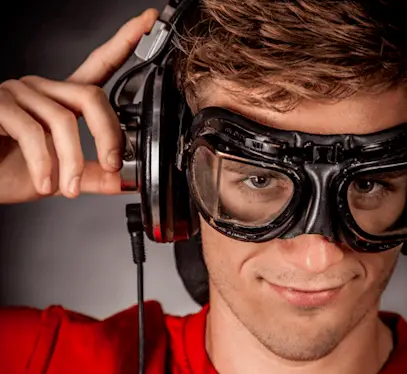
HI, John Andrew here. I’ve been an audiophile since I was a little kid. I’m an original member of myaudiolover . It emerged as a way for me to share my passion and knowledge for audio technology. If you’re looking for tips, techniques, and insights about audio-tech, that can enable your productions that professional edge, then MyAudioLover is the place for you!

